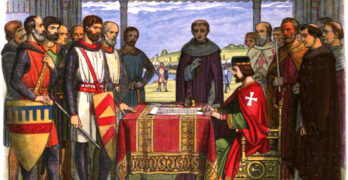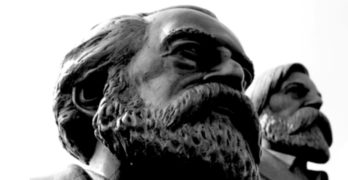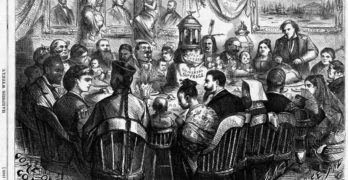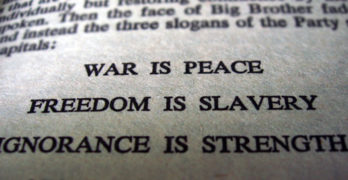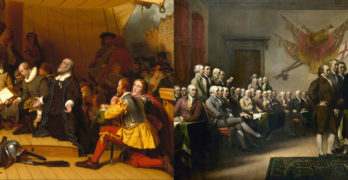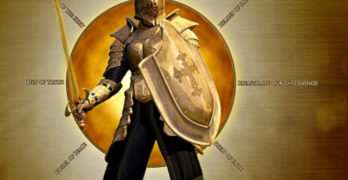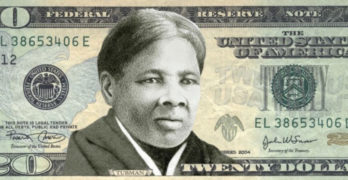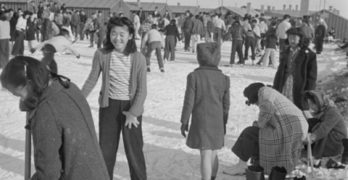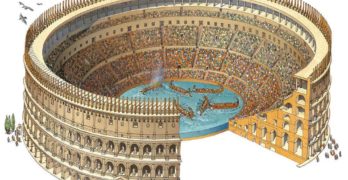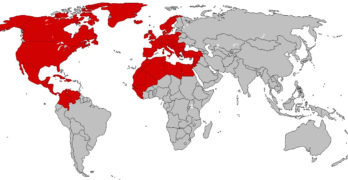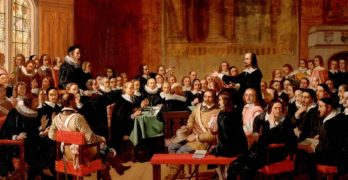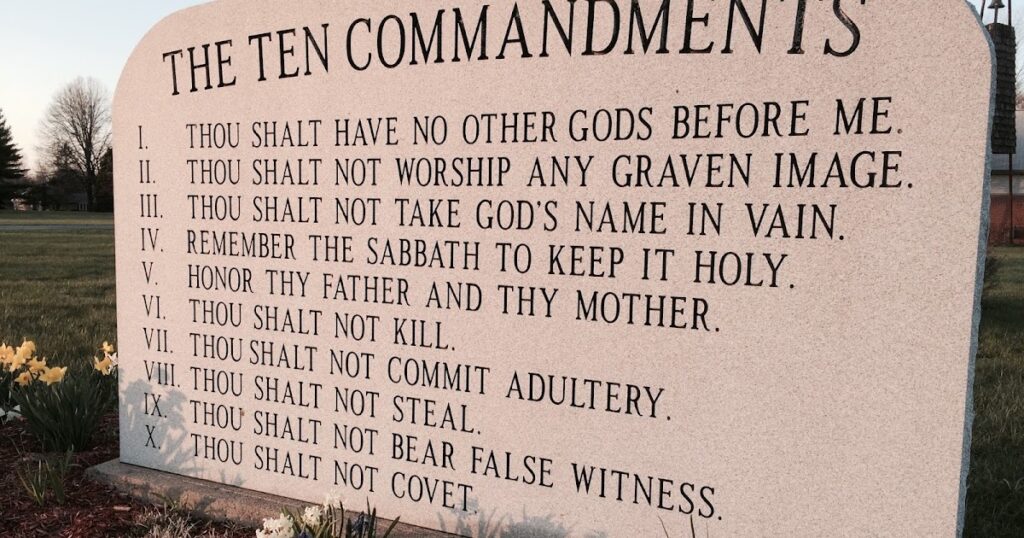 One of the most FAQs is, “What is the difference between obeying and honoring our Parents?” Scripture tells us, Honor (esteem and value as precious) your father and your mother—this is the first commandment with a promise—that all may be well with you and that you may live long on the earth. (Ephesians 6:2-3)
One of the most FAQs is, “What is the difference between obeying and honoring our Parents?” Scripture tells us, Honor (esteem and value as precious) your father and your mother—this is the first commandment with a promise—that all may be well with you and that you may live long on the earth. (Ephesians 6:2-3)
Children are to obey while under their parents care, but the responsibility to honor parents is for life. The word honor means: to value, esteem, respect, love, treat favorably and to have high regard for. Does it mean that I have to agree with everything they do? No. It is possible to respect and honor your parents without agreeing with them on all points or endorsing everything they do. You may disagree strongly with them in some matters, yet maintain a respectful attitude towards them.
What if the parents are unfair and demanding, are we to honor and respect them? Unfortunately, the answer to this is an affirmative yes! But we to need to emphasize this; there is a difference between obeying and honoring. To obey means to follow the commands, guidance, conform to, or comply with someone. To honor primarily means to respect and love. Children are not commanded to disobey God in obeying their parents. Adult children are not asked to be subservient to domineering, controlling and manipulative parents.
Consider Israel’s first king, Saul, who disobeyed God’s command to attack the Amalekites and totally destroy all that belonged to them. (See 1 Samuel 15:1-9) Samuel arrived on the scene and found that Saul had failed to obey all that God has said. Samuel becomes very angry, executes Agag before the altar of the Lord, and tells Saul that to obey is better than to sacrifice. Samuel further tells Saul that because he has rejected the word of the Lord, God has rejected him as king. From that day until Samuel’s death, Saul would never hear from Samuel again.
From this moment on Saul deteriorated mentally as well as morally. We read that the Holy Spirit left him and an unclean spirit took over. He became unpredictable, moody and reacted without a moment’s notice. There was one thing that could calm Saul down-David’s music. So David, known as the skilled harp player was brought to court and his music soothed Saul’s spirit.
The Bible tells us, when Saul’s son Jonathan met with David, there was an immediate bond of love between them, and they made a covenant and became the best of friends. (1 Samuel 18:3-4) Jonathan graciously accepted to be David’s subject and he left him to be the next ruler of Israel, honoured him and despite being a prince he abdicated his position in favour of a shepherd boy.
At one point, Saul asked Jonathan his son to be involved in David’s death, but Jonathan and Michal were on David’s side, and in the course of several plots Jonathan warned David of Saul’s intentions. The challenge is, sometimes he was forced to deal with conflicting loyalties to his father, Saul, and to his friend David. The question is: Where do we draw the line with regards to loyalty especially through the conflicting demands of human relationships?
If we attempt to please our parents at the expense of obeying the Lord, we will be constantly dealing with problems. But if we communicate to them that our ultimate loyalty is to God and His truth, many of our choices might lead us to a better place. Jonathan, however, might have faced a moral dilemma of being loyal to his father at expense of his life or remain with David and thereby survive death.
Saul Consulted the Dead
When the Lord rejected Saul as king after he had failed to obey all that the Lord had said, he found that he had no way finding out the Lord’s will and no idea whether Israel’s wars will be successful or not.
Although Saul had banned all mediums and all those who consult with the spirits of the dead from Israel, in desperation at the very end of his reign, sometime after the Prophet Samuel’s death, he turned to a woman medium for counsel. Saul goes to her and calls up Samuel’s spirit for a final conversation. He is told that the imminent battle with the Philistines will be his last.
Saul was overwhelmed at the sight of the Philistine army and so he turned to the occult. Instead of turning to the Lord for direction he turned to the occult which led to a series of disasters including his subsequent death. The story is a salutary reminder that God hates idolatry which is when people insult God and worship something else or engage in witchcraft.
What is witchcraft? Witchcraft has been described as an expression of man’s rebellion against God. It is man’s attempt to gain his own ends without submitting to God’s Law. Its driving force is a desire to control people and circumstances.
God had strictly forbidden the Israelites to have anything to do with divination, sorcery, witchcraft, mediums or anyone who consults the dead. (See Deut 18:9-14) When someone communes with the dead, they are actually hearing from demonic beings merely feigning the famous dead. According to the Bible, the dead are eternally unavailable for comment.
Although Saul had removed the sin of witchcraft from the land, he did not remove it from his heart. We may make a great show of denouncing sin, but if our hearts do not change the sins will return. Knowing what is right and condemning what is wrong do not take the place of doing what is right.
This reminds me of a story I read of a wealthy woman who attended a church service when she was terribly sick. But just days before her illness, she had involved herself in witchcraft practices and consulted witch doctors concerning her family affairs. The church elders tried to burn her objects of witchcraft with fire, but no matter how many fetishes they burned and no matter how many witches were converted as a result of her testimony, they would never reduce the number of demons.
These deeply committed servants of Satan, and invisible members of a spiritual network of evil could not be fought by flesh and blood. Nothing but supernatural grace and power of God could effectively remove all these roots of occult practices. The enormity of this knowledge overwhelmed the leaders and, for the first time most of them, began to understand the scope of Satan’s kingdom. It is a kingdom of innumerable loyal subjects, whose shrines were not inanimate objects to be burnt but human beings themselves.
It might be helpful to consider another the example of Israel (see Deuteronomy 7:1–8). As they were preparing to enter the Promised Land, God told them to completely abolish all idolatry and exterminate the Canaanites, that they may not be led astray to disobey the First Commandment.
He strongly warned them again and again to avoid becoming ensnared by the idols of these nations that had previously lived in the land of Canaan. The book of Deuteronomy makes it clear that all the seven nations including Canaan were full of idolatry. There was occultism, witchcraft, astrology, superstition, spiritism, and fertility cults.
They worshipped ‘Mother Earth’, believing that sexual acts had links with the fertility of the land. In the pagan temples there were male and female prostitutes, and worship included sex. These practices were reflected in the monuments throughout the land like asherah poles which were frequently seen on the hills as a witness to the pagan rituals which predominated the land. (See Deuteronomy 7:1-8)
Even though God kept His promise by destroying the native people, the children of Israel began to worship the gods of the people, even though they had no contact with them whatsoever! It was the evil of the land—the idolatry and immorality that were in the land—that was waiting to destroy God’s people. When Joshua succeeded Moses, the instructions were same.
During Joshua’s reign, the Lord commanded His people to conquer the Canaanites and take all their land. Completing this mission would have fulfilled God’s promise to Abraham and brought judgment on the evil people living there. Unfortunately, Israel violated the instructions about the things set apart for the Lord. This referred to things like clothing, cattle, and other plunder that God said Israel should destroy when they had conquered Jericho.
A man named Achan had stolen some of these dedicated things, so the Lord was very angry with the Israelites. So when Joshua sent some of his men from Jericho to spy out the town of Ai, they returned and told Joshua not to take more than two or three thousand men to attack Ai. So approximately 3,000 men were defeated and Israel army melted in fear. Joshua decided to seek the Lord and find out why He would let the Amorites kill them.
The Lord said to Joshua: Israel has sinned…..you have things under the curse of destruction among you; and you will not be able to stand before your enemies until you remove the things that were to have been destroyed from among you… The Israelites were to come forward one family at a time, one household at the time and one person at time. (See Joshua 7:10-14)
Finally each member of the family came forward, person by person until Achan was singled out. Then Joshua said to Achan to tell him what he had done. Achan replied, “It is true! I have sinned against the Lord, the God of Israel. The question is why did the sin of Achan bring judgment on the entire nation and his family? Achan’s sin was not just keeping some of the captured goods, but it was disobeying God’s explicit command to destroy everything connected with Jericho.
His sin was, he underestimated God’s commands and became indifferent to the evil and idolatry of the city. It was not just a desire for clothes and gold. Like Saul’s sin, Achan’s sin was felt by the entire nation, most especially his family.
Achan, as the head of the family, was responsible for the blessing or curse of his family. If he had obeyed the commands of the Lord the whole nation and his family would have prospered. But due to his disobedience many Israelites died in battle and everything that belonged to him had to be destroyed—including his family.
Whenever the Israelites did evil in the Lord’s sight especially in worshipping idols, He always sent a prophet to deliver them. For instance, the Lord revealed Himself to Gideon in a dream, and bade him overthrow the altar of the heathen god Baal, where people worshipped, cut down the scared grove and offer up his father’s bullock in sacrifice to the true God. Again this involved a parent and this time his father.
When he awoke, Gideon did as the Lord had commanded, but because he was too afraid of his father’s household and the men of the city to do it by day, he did it by night. In spite of the fact that Gideon was terrified of displeasing his father, he had to obey the Lord and leave the consequences of his obedience to Him. Sin has consequences and our minds are very slow to understand the awful wickedness of idol worship. In his book, Blessing or Curses. You Can Choose, Bible teacher Derek Prince wrote that:
Those who trespass in this area are seeking from Satan the supernatural knowledge or power that God does not permit man to seek from any other source but Himself. The true God, revealed first in creation and then more fully in Scripture, is holy, awesome, glorious, and omnipotent. To represent Him in the likeness of any created being—whether human or animal—is to offer Him a deliberate insult. It is a calculated provocation of His wrath.
Lessons from our Past
What information about our enemy’s tactics can be learned from our family, nation or the people of our past? First, there is a connection between the cultures and events of the past, and the spiritual wickedness we are presently fighting, whether this is from our families, cities or nations.
In the example of Saul, his children (including Jonathan) and grandchildren were destined to sit on the throne, but because of Saul’s rebellion, God cut his family off and instead anointed a young man named David through whose lineage the Messiah would eventually be born (1 Samuel 16:1-13) We might say, “Jonathan was innocent, why then did he lose his life or right to the throne?” It was because of his father’s disobedience.
Remember the Lord told Saul that: For rebellion is as the sin of witchcraft, and stubbornness is as idolatry and teraphim (household good luck images). Because you have rejected the word of the Lord, He also has rejected you from being king. (1 Samuel 15: 23)
Secondly, the Lord never intended for despair and heartache to be passed from parents to children. It was never His plan. So the reader might be asking, “Why did He let it happen?” or “Why did God let my parents do those things to me?” Well, God never let it happen. What God did was to give us a free will and the parents acted out of the free will He gave them.
The choice of life or death; blessing or cursing are in our hands. (See Deuteronomy 30:11-20) We each have the choice to do either the right thing or the wrong thing. Our parents had a choice; now we also have choices. We can choose, for example, to continue to hate or to be angry for the rest of our lives. If we choose bitterness, however, we will never experience the presence or peace of God. Nor will we know the power of divine grace moving through our previous generations.
The Family of Jacob
Another example is provided by the family of Jacob. He and his two wives, two concubines and eleven children, fled by stealth from his Uncle Laban in Mesopotamia and set out to return to the land of Canaan. Three days later, Laban was told that Jacob had fled. So Laban gathered a group of his relatives and set out in pursuing Jacob.
He caught up with Jacob seven days later in the hill country of Gilead. There followed a confrontation between them, in which Laban accused Jacob of stealing his teraphim household idols or gods. These were used for divination and supposed to protect a home from evil forces and offer advice in terms of need.
These idols had legal significance that possession of the father’s household gods played an important role in inheritance. Excavated Nuzi tablets indicated that in the region where Laban lived, a son-in-law who possessed the family images could appear in court and make claim to the estate of his father-in-law.
Since Jacob’s possession of the images implied the right to inheritance of Laban’s wealth, one can understand why Laban organized his hurried expedition to recover the images (J. P. Free, Archaeology and Bible History).
Jacob was absolutely sure no one had stolen Laban’s idols. He challenged Laban to search all his family’s belongings and added a vow for the person who had taken them to die if found. But if you find your gods with someone, that person will not remain alive. (Genesis 31:32 CJB) What Jacob didn’t know was that his beloved wife Rachel had secretly taken the idols.
Laban went ahead to search all the belongings of Jacob’s household. He went through Jacob’s tent, Leah’s tent, and the tents of the two maids but didn’t find them. He went from Leah’s tent to Rachel’s. But Rachel had taken the household gods, put them inside a camel cushion, and was sitting on them.
When Laban had gone through the tent, searching high and low without finding a thing, Rachel said to her father, “Don’t think I’m being disrespectful, my master, that I can’t stand before you, but I’m having my period.” So even though he turned the place upside down in his search, he didn’t find the household gods. (Genesis 31:33-35)
Life and death are in the power of the tongue. Jacob didn’t realize that his vow of death, which was equivalent to a curse of death to the offender, was directed towards his wife. The fact that Jacob didn’t realize that his words were directed against Rachel did not prevent the tragedy from happening. Shortly afterward, in giving birth to her second son, Rachel died in labor (see Genesis 35:16-19).
Derek Prince noted that, “by taking possession of false gods, Rachel also trespassed in the area of idolatry and of the occult and by her own sins she had already forfeited God’s protection and exposed herself to the curse that inevitably follows occult involvement.”
Idolatry Leads to Immorality
In a nutshell, there are two sins that affect the relationship between parents and their children much more than anything else. One is idolatry and the other is immorality. Idolatry is when people insult God and worship something else. Immorality is when people indulge themselves. Idolatry leads to immorality and loss of respect for the Lord which again leads to loss of love, honor and respect for our loved ones.
In 1 Corinthians 6:9-11, Paul tells us that idolatry was part of the Corinthian culture to the extent that some Christians in Corinth were mixing the worship of God with pagan practices. He lists the sort of sins that were part of the Corinthians believers’ former way of life and one of these was there were idolaters and sexually immoral.
Jude the brother of our Lord Jesus and James also warns us that, God’s judgment will fall on those who follow the same pattern of idolatry (which hurts him) and immorality (which hurts those he has made).
Likewise, the Apostle John in second letter urges us to keep ourselves from idols (false gods) or from anything and everything that would occupy the place in our hearts due to God, or from any sort of substitute for Him that would take first place in our lives. (See 1 John 5:21)
The Lord in His mercy reveals all of this, so that we might repent, pray, intercede and engage in spiritual warfare with these principalities that hinder us from the calling God has for us. This is why under the leadership of Nehemiah the Israelites confessed and repented of their own sins and the sins of their parents or ancestors, just as if they were their own, in order to cleanse the land from the curse (see Nehemiah 9).
Photo courtesy: Heavens Call









